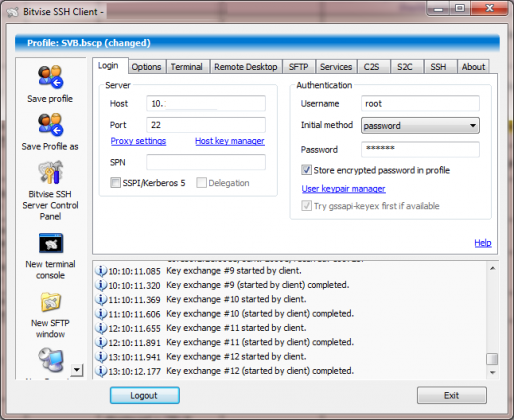

Your public key doesn't need saving because it can always be generated instantly from the private key - but don't close PuTTYgen yet because we're going to do some cPanel magic. ppk extension (you'll need this file later in this guide). A private key with a weak or no passphrase is a gift to hackers! Generally speaking, a good 16 character passphrase will keep the world's most powerful computers at bay until the sun burns out! Click the Save private key button and save your private key with the. If your private key ever gets stolen, this password is your last line of defence. Keep this passphrase somewhere secure so you can get to it later (you'll need it anytime you want to use your private key from a new computer). When you've shuffled your key around the area enough, the green bar will reach the right side and PuTTYgen will create your keypair and you will see something like this: Just fill in the Key comment field (your name is a good idea), and enter a STRONG passphrase including upper and lowercase letters, numbers, and symbols. PuTTYgen will then ask you to wiggle your mouse around for a while to help it generate the key.

If you are unsure what to choose, just copy the settings shown below. Generate your public/private key pair Start PuTTYgen, and choose a type of key to generate and keysize.You can open them in notepad if you are curious! The key files are just plain text - nothing magical. Because only you have the private key you can always regenerate the public key again from it. It doesn't matter if your public key gets stolen or lost. The public key can be freely installed on remote systems. The private key remains on your computer and should be kept safe from unauthorised access. Public/private key authentication, as the name suggests, uses two special cryptographic text files (called keys) to authenticate your login. This article assumes you have already installed the PuTTY suite of applications. Enhancing SFTP Access using Filezilla with public/private keys.


 0 kommentar(er)
0 kommentar(er)
